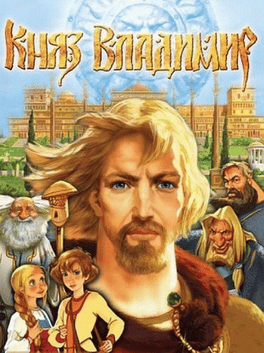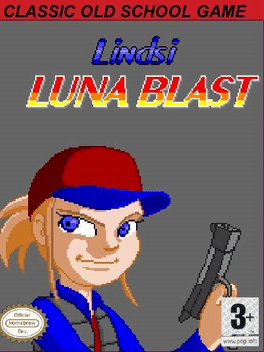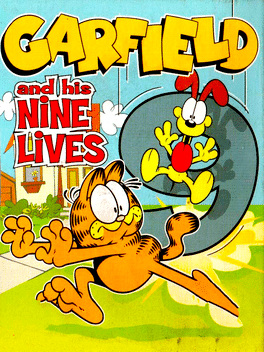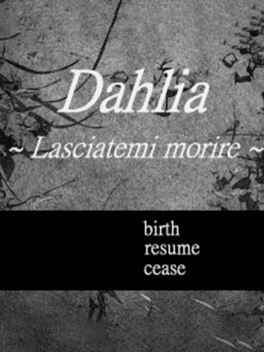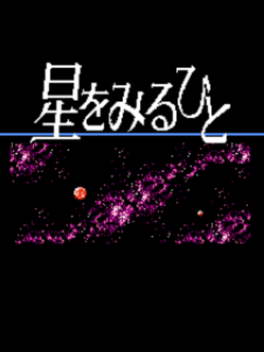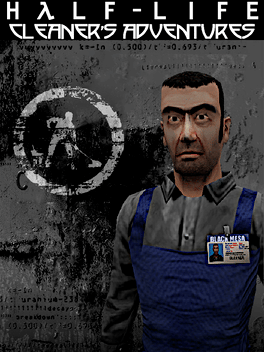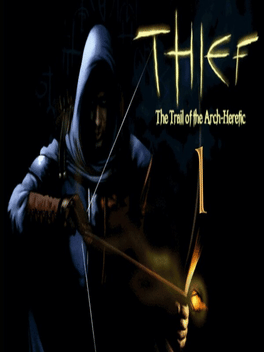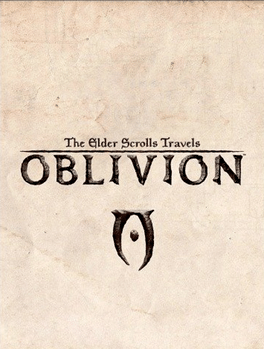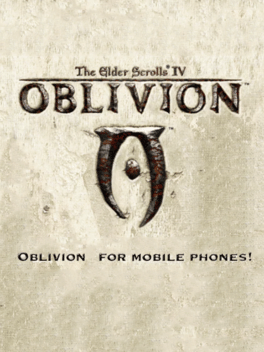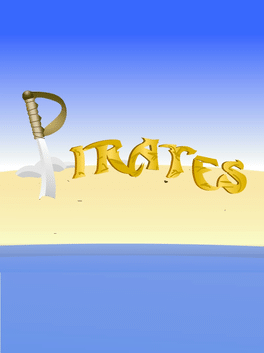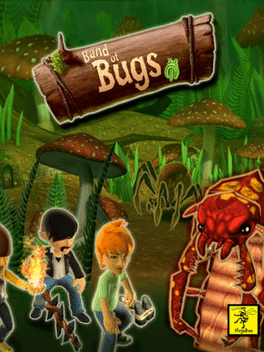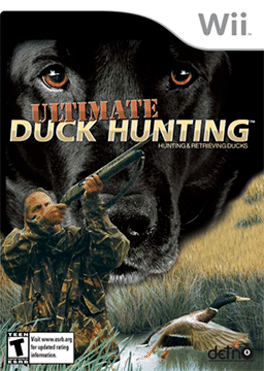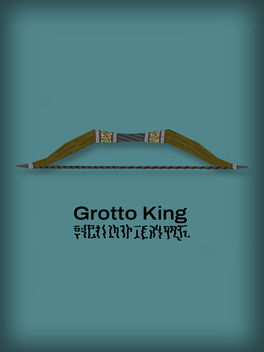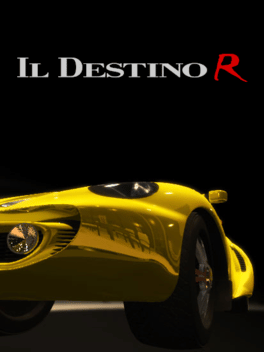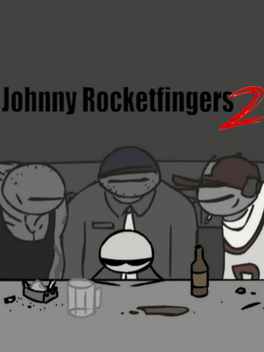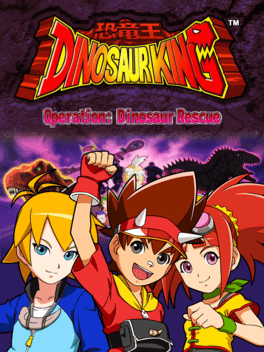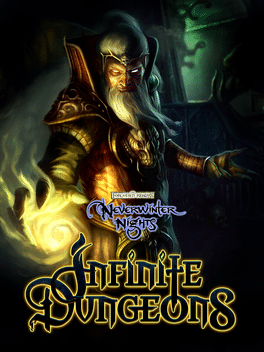New Games - Page 10261
-
Knyaz' Vladimir
2006
Knyaz' Vladimir
2006
Knyaz' Vladimir is an action platformer for Windows based on the cartoon of the same name, developed by PiPE Studio and published by 1C on May 5, 2006. -
Another Timeless Night
2006
Duke was taking the subway home when the aliens decide to attack the station while he was waiting for his connecting train. -
Over the Hedge
2006
Over the Hedge
2006
In the video game, which takes place a year after the movie, RJ, Hammy, Verne, and the gang feel that they need to have more things for the log (the area behind the hedge). This leads them on a wild romp through six different areas to snatch different things such as a popcorn machine and a TV for themselves. There are several mini games as bonuses in the game. All through the game, they try to take these things while avoiding the Sniffer, (Dwayne the Verminator), who tries to defeat them by using mind-controlled vermin he has captured as his "henchmen." At one point, many animals, including weasels, badgers, and even Vincent the bear are controlled. -
Lindsi Luna Blast
2006
Lindsi Luna Blast
2006
Homebrew game about a secret agent. Lindsi is a "homage to old school games". Pure action, with a little research side. You must go through differents levels to find how to escape. -
Garfield and His Nine Lives
2006
The classic comic strip character Garfield is back – just as fat, lazy and lovable as ever! The cynical orange cat loves lasagne, coffee, and his remote control as well as his owner, the long-suffering Jon Arbuckle and the sweet but dumb dog Odie. One evening just before bed time Garfield goes on one of his beloved eating benders. That night he faces the consequences as he endures a night full of strange dreams. These dreams and, in some case, nightmares, take Garfield and the player on 9 unique adventures based on the cat's 9 "lives"! -
Dahlia: Lasciatemi morire
2006
A short RPG questioning the meaning of human life in a world crumbling to death. Dahlia, a girl with aphasia, whistles gloomily as she proceeds down a cold, dark path for a certain purpose. -
Half-Life: Cleaner's Adventures
2006
You play as Bryan Anderson, a Black Mesa janitor who is unfortunate enough to get caught up in the Resonance Cascade and must now combat the vicious Xen forces and the hostile HECU. -
Thief: The Trail of the Arch-Heretic
2006
A moody, ambient WAD intended to put some of the feeling of "Thief: the Dark Project" into Heretic. It's a reworking of my own njthief WAD for Doom2. -
The Elder Scrolls Travels: Oblivion
2006
An RPG originally in the works for the Playstation Portable to be released in 2007, but has since been presumed on hold, or even canceled, since no more information has been revealed. -
Super Crazy Guitar Maniac Deluxe
2006
A guitar rhythm game to test your skill and timing, with some great music by Newgrounds artists. Made for the Flash Portal Game Contest #1. -
Battle Pirates
2006
Battle Pirates
2006
With your arsenal of pirate weapons and a head full of strategy, blast away those enemy pirates and purge the seven seas! Create your own team and pit it against the CPU, or someone you just dont like. -
Band of Bugs
2006
Band of Bugs
2006
star 6.5Maal is an unhappy bug who needs structure and a purpose in his life, so he joins the royal army under the tutelage of the battle-hardened mantis warrior Tiernan. Now, he must begin his quest to save the Queen and the kingdom. NinjaBee's Band of Bugs puts you in Maal's shoes er, footpads, and sets you in the middle of a fast-playing, accessible, tactical strategy game designed specifically for Xbox LIVE Arcade. This turn-based tactics game expands the genre by providing a unique Level Editor, allowing gamers to create levels and play them online with friends. -
Ultimate Duck Hunting
2006
star 3.6Ultimate Duck Hunting is a duck hunting video game developed by Mid Carolina Media. The goal of the game is to shoot ducks and then collect them with hunting dogs, a concept similar to that of the classic NES game, Duck Hunt. -
Grotto King
2006
Grotto King
2006
Brave the dungeon filled with monsters and treasures of all sizes. Grotto King is a short first-person action game made for beginners and gurus alike. -
Il Destino R
2006
Il Destino R
2006
The fourth game released by Gotmail, a more difficult version of Il Destino. It features multiple language options and different puzzles. The player must escape a car shop. -
Johnny Rocketfingers 2
2006
Johnny Rocketfingers 2 is a point-and-click adventure game that lets you play as Johnny Rocketfingers, the toughest, bravest, strongest guy around. This time, you will have to find who's out to get you, and give them a little visit. Pick up items, combine them, and use your wit to get to the bottom of the mystery that you've been roped into in Johnny Rocketfingers 2. -
Dinosaur King: Operation Dinosaur Rescue
2006
The next entry of the arcade machine series, where you fight with dinosaurs with a rock, paper, scissors enhanced system. A continuation of the previous story. Max and Rex decided to continue rescuing dinosaurs. They soon discover the Alpha Gang delivering some dinosaurs away for experiments. They succeeded in creating an Alpha Acrocanthosaurus, in which serves as the final boss. In the story, they were also close to transforming an Irritator. -
Neverwinter Nights: Infinite Dungeons
2006
star 4.2Neverwinter Nights: Infinite Dungeons is a premium module for Neverwinter Nights. The game is a dungeon-crawler featuring an entirely randomized environment, items, and NPCs. The player journeys through Undermountain, killing hordes of hostile creatures and encountering traders, quest givers, and allies. The game is split into seven sections each corresponding to its ruler, a game's boss. A unique feature of the module is the map, which, when used, appears under a player's feet, showing the entire level and its sections, and the player position.

